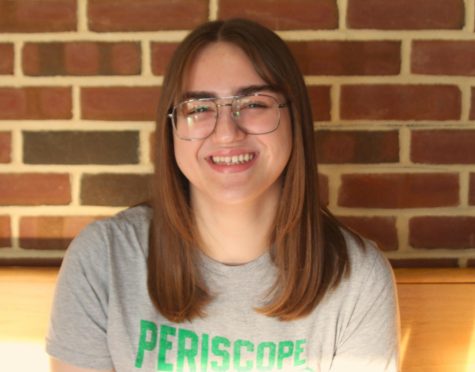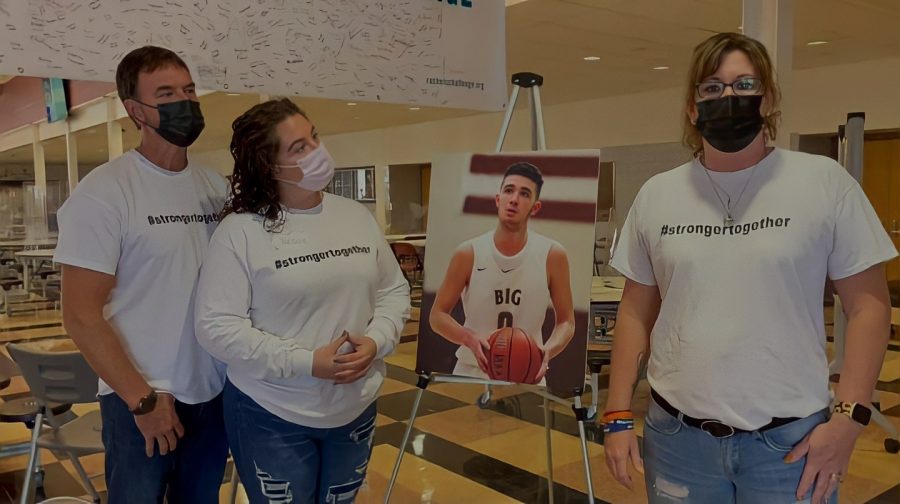The Beat Goes On: The Peyton Walker Foundation offers free screenings
COMING TOGETHER: This photo was taken at a memorial screening event, through The Peyton Walker Foundation, in memory of JT Kuhn on October 16. They had offered heart screenings which included a heart murmur check, blood pressure reading, and EKG through an on-site UPMC cardiologist.
As reported by The Centers for Disease Control and Prevention (CDC), approximately 2,000 outwardly healthy, young people under the age of 25 in the United States die every year of Sudden Cardiac Arrest (SCA).
SCA is the dominant cause of death for student-athletes, a seemingly perfectly healthy teen dies every hour, every day from SCA and many had no clue they were at any risk since SCA is a silent killer.
The majority of cases often present themselves with symptoms such as shortness of breath and dizziness, symptoms often overlooked for athletes since they are confused with exertion. In addition, along with most people not noticing the warning signs, frequently, the only symptom is sudden death.
So, how can teens that may be worried about SCA get checked for underlying heart conditions? With echocardiograms (EKG’s) costing anywhere from $50 to $3,000 out of pocket, without insurance, some concerned teens or families of teens might not be able to afford that; does that mean that just because they can’t afford a needed medical test that they shouldn’t be entitled to the knowledge of their own well-being? Undeniably not.
This is where the Peyton Walker Foundation comes into play.
The Peyton Walker Foundation was founded in memory of Peyton Walker who passed away as a result of SCA in November of 2013, at just 19. Walker’s family said, in their “Our Story” portion of the Foundations website, that the motivation for this foundation “came from the words that were emblazoned on the shirt Peyton was wearing on November 2: ‘What we do for ourselves dies with us….What we do for others and the world remains and is immortal,” a quote said by Albert Pike, a 1800’s author and poet.
Her shirt became a wake-up call to her family; they established the foundation in an attempt to “save young lives so that other families would never know the heartache of losing a child without warning to Sudden Cardiac Arrest.”
The Foundation’s mission, as mentioned on their website, is to increase awareness and survival rates of Sudden Cardiac Arrest, a goal which they are accomplishing with about 125,000 adults and children further educated on the topic of SCA. Along with having screened 3,500 hearts thus far, about 400 children were referred to get further testing with physicians.
A recent Foundation event was held on Saturday, October 16 at Big Spring Middle School, in honor of a past Carlisle student and Periscope writer JT Kuhn, who had passed away in March of 2019 as a result of a heart attack due to SCA.
According to Asheleigh Forsburg, the managing director for the Peyton Walker Foundation, the event had a “great turnout”.
“We had 196 students participating […] It [was] a great turnout and we are happy to be able to screen that many students,” said Forsburg.
The screenings, which are free, include a variety of services.
“As far as the screening itself, everyone who attends will receive a heart murmur check, blood pressure reading, and EKG,” said Forsburg. “There are cardiologists on-site who will review the information and if there is any suspicious [data] either through family history, medical questionnaire or readings that day may be referred to receive an Echocardiogram on site. Once the tests are done, cardiologists may refer students to a cardiologist for additional consultation or testing if they deem it necessary.”
The Foundation also provides CPR and AED (automated external defibrillator) certification training classes a few times a year, along with multiple scholarships each year to students pursuing careers in healthcare and donations of AEDs to multiple local central PA community organizations, schools, athletic clubs and police departments in need.
“We have screened over 3,500 students at various schools in the region since we began our organization and every screening has detected underlying heart issues on at least one student,” Forsburg said.
The Foundation as a whole also expressed their appreciation towards their UPMC Healthcare team and volunteers that worked the event in JT’s memory on their Facebook page.
“And to all of our incredible volunteers and the UPMC Central Pa. medical team, you are the best! After 18 months of no heart screenings, we appreciate all you do so that #TheBeatGoesOn”.
Currently, there are no further scheduled events for the Foundation, but they hope to have another screening event for students in the spring of 2022.
If you or someone you know may be interested in attending future events, either to receive a screening or to volunteer, the best place to keep up to date is through their website or on their Facebook page for future follow-ups.
Want to help the Herd? Please consider supporting the Periscope program. Your donation will support the student journalists of CHS and allow us to purchase equipment, send students to workshops/camps, and cover our annual website hosting costs.

Jillian is a Senior at Carlisle High School, this is her fourth year being a member of the Periscope staff. She is very excited to return to the staff...





























































































joe • Dec 13, 2021 at 1:26 pm
This is a great article, I enjoyed reading it!
Allie Attinger • Nov 9, 2021 at 2:48 pm
Jillian,
This article is well researched and I learned so much about Sudden Cardiac Arrest! I feel like I need to go get screened now!
Nick • Oct 28, 2021 at 1:42 pm
I knew JT through basketball so I knew about his story. It’s good that people are raising awareness through organizations to help as many people as possible. It is important that people get checked so we can catch SCA risk early.
Natalie O'Neill • Oct 26, 2021 at 9:41 am
This article is very personal to me because my sister knew JT and went through that tragedy with him. I have heard a little about a foundation being founded in JT’s name however I have not heard of the Peyton Walker foundation. I am glad to see that people are taking steps to educate the youth about SCA because I had never even heard of it until the passing of JT.
Dominic Gearhart • Oct 25, 2021 at 7:30 pm
I have heard the story of the tragedy of JT Kuhn, and I am glad that this foundation is raising awareness of Sudden Cardiac Arrest in an effort to help those that are susceptible, and use his memory to help others so no other person will have to endure the hardship that Kuhn’s family did.